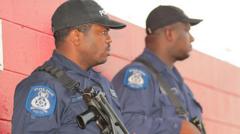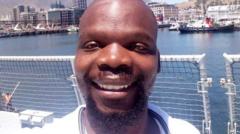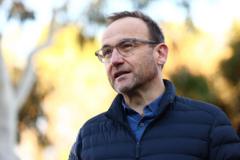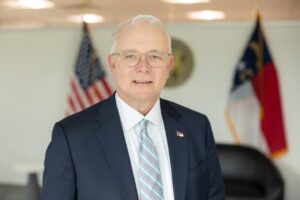The Caribbean nation grapples with record homicide numbers, highlighting urgent need for safety measures as elections loom.
Trinidad and Tobago Faces State of Emergency Amid Surging Gang Violence

Trinidad and Tobago Faces State of Emergency Amid Surging Gang Violence
Trinidad and Tobago declares a state of emergency as violent crime rates escalate, startling residents and prompting urgent government response.
Trinidad and Tobago has officially declared a state of emergency due to a significant surge in gang-related violence in the nation. The decision came from President Christine Carla Kangaloo, following consultation with Prime Minister Keith Rowley, who has faced mounting pressure to respond decisively to the alarming rise in crime rates. Notably, the twin-island republic struggles with one of the highest homicide rates in Latin America and the Caribbean, having recorded over 620 murders in a year with a population of approximately 1.5 million.
The majority of these violent incidents can be traced back to organized crime and are frequently linked to the international drug trade. According to reports from the U.S. State Department, Trinidad and Tobago, due to its proximity to Venezuela, has become a key trans-shipment point for narcotics targeting Europe and North America, thanks to its porous borders and well-established transportation routes. As gang violence escalated, the gravity of the situation was highlighted when five men were shot dead in a Laventille shop, with police suspecting the killings were retaliatory actions tied to the murder of a prominent gang member the previous day.
With this declaration of emergency, police forces are granted expanded powers to conduct searches and make arrests based on suspicion of criminal activity. The government emphasized that these measures aim to address threats to public safety, particularly among those engaged in criminal enterprises and illegal firearm usage. Despite these measures, the Prime Minister's office assured the public that no curfew would be enforced.
As the state of emergency unfolds, there are concerns regarding the upcoming Carnival celebrations—an essential cultural event in Trinidad and Tobago. Scheduled to conclude with a grand parade before Ash Wednesday in early March, the Carnival typically draws thousands of international visitors. Yet, the implementation of heightened security measures may influence the festive atmosphere that characterizes this annual event.
This emergency situation arises against the backdrop of an impending general election, which must occur by August 2025. The ruling People's National Movement party, which has held power since September 2015, is preparing for a stiff challenge from the opposition United National Congress, led by former Prime Minister Kamla Persad-Bissessar.























